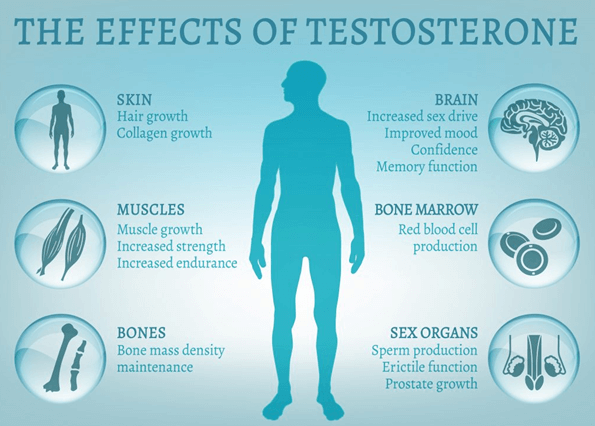Men’s Health

I have been an NHS doctor for almost 25 years. Whilst I see everyone in general practice, I’ve specialised in Men’s Health, including their sexual function and fertility.
Why is men’s health such an issue? Because 20% of men in the UK die before they reach retirement age. Because men in the UK live 7 years less long than women.
In general (I recognise this is a stereotype, but one backed up by evidence), on top of our genetic and hormonal differences from women, we tend to take more risks and don’t take care of ourselves as well as women do. We go to the doctor less frequently, often attending later than we should and don’t engage with treatment as thoroughly. There are big differences in our health outcomes based on where we live, our education and social status: men in the the wealthiest areas of Chelsea live 22 years longer than those in the most deprived of Sunderland, and live more of that life in good health.
To try and redress the balance, I have teamed up with the Centre for Men’s Health to assess, diagnose and treat health issues as early as possible and build a tailored plan that meets your wishes and needs. I see men who have often ‘lost their mojo’ with fatigue, grumpiness or sexual problems, who may have seen their exercise ability plateau or decline. These can all be symptoms of testosterone deficiency syndrome. By identifying men who have low testosterone or reassuring those that don’t, I build a personalised plan to maximise your future health.
Low Testosterone and the Testosterone Deficiency Syndrome
Up to 4 in 10 men over the age of 45 have low testosterone. 1 in 10 will have low testosterone plus symptoms which can range from brain fog to fatigue, sexual dysfunction and even bone fractures.
To reassure you, most men will never need testosterone replacement therapy, however with an aging population, by 2045, half of all men will be aged 45 and over. That represents up to 7,000,000 men with low testosterone.
However it’s not just men over 45 who seem to have low testosterone. Increasing numbers of young men are affected. As part of my male fertility work, I see many men who have poor sperm counts associated with a reduced testosterone level. Your testicles have two jobs – to make sperm and make testosterone and the latter is vital to help the former. If you have a low testosterone level, you may not make enough sperm or they may not be healthy enough to get to the egg.
Why is testosterone important?
Testosterone is a hormone produced by the adrenal glands and the testicles.
Testosterone has wide ranging effects across the body, including acting on the brain to manage motivation and mood, increasing production of blood, maintaining muscle and bone mass, aiding sperm development, reducing cholesterol and improving sugar control. It also drives the changes that men see in puberty such as body hair growth, voice changes etc.

Symptoms of low testosterone:
Low testosterone levels can be accompanied by four main groups of changes and symptoms:
- Mood: this can include low mood, anxiety, irritability and bad sleep
- Cognition: memory issues, fatigue, poor motivation and brain fog
- Physical: limited progress at the gym or if severe, reduction in muscle mass and bone density, anaemia (low blood count)
- Sexual problems: including reduced libido (sexual interest) and erection problems
If you feel this may apply to you, click on the link below for a free symptom check:
Low levels of testosterone are also associated with an increased risk of diabetes, heart disease and obesity. And if you have already have diabetes and heart disease, a low testosterone increases your risk of early death. Replacing testosterone.
This is why people who are interested, concerned or already have diabetes/heart disease should have a testosterone check-up.
As many conditions overlap with TDS, such as thyroid problems or depression it is important to speak to someone who will take a broad-ranging, holistic view. You need a tailored assessment and bespoke treatment plan taking into account your symptoms, examination findings, investigation results and future wishes. For example, does your fertility matter to you? If it does, then you should never receive testosterone therapy on its own as this can switch off further sperm production. In this situation other treatments to increase testosterone and retain or enhance fertility will be recommended.
Sexual Problems:
Erectile problems:
Erections problems can affect anyone at any age, although it tends to be more psychological in younger people. Up to 40% of 40 year olds and 70% of 70yr olds have erection issues such as either not being able to get or keep their erections for long enough for satisfactory sex. Again, this can be linked to a low testosterone but most commonly is a mix of psychological factors (such as performance anxiety) or medical issues (such as diabetes or heart disease).
The penis has a ‘sponge’ centre which needs a functioning heart and blood supply to fill with blood. If your blood vessels are narrow due to smoking or high cholesterol then it’s difficult to get enough blood into the penis. If the nerve supply to the penis is affected – by diabetes or anxiety – this means the penis doesn’t receive the signals it needs to fill.
Making sure you have a thorough assessment that checks for psychological issues as well as health conditions like cardiovascular disease and diabetes is key. We can put together a treatment plan from reinvigorating a ‘sleepy’ penis with penile rehab to medications, sexual homework and psychosexual therapy.
Ejaculation issues:
Premature, delayed and absent ejaculation are conditions we also see in the clinic. Up to 30% on men ejaculate early and for some of these men it can cause distress or challenges in their sex lives. We can help to assess and investigate the causes and see what treatments might help.